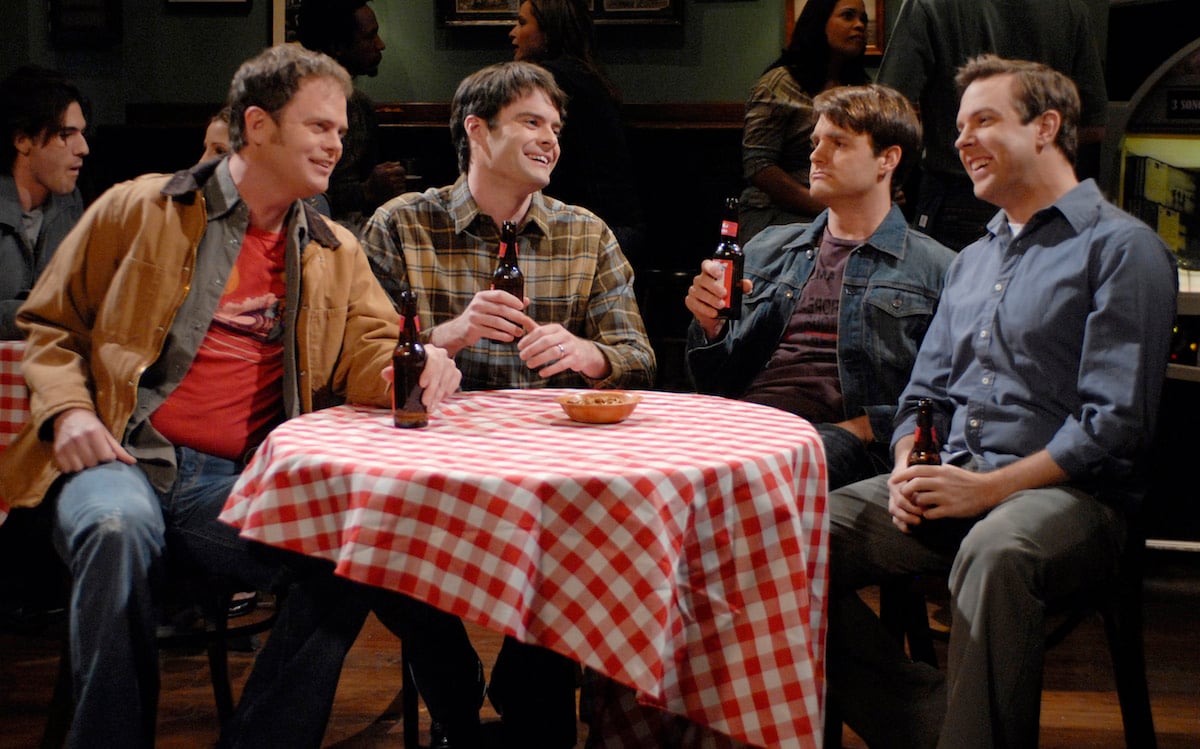‘SNL’ Once Tastelessly Used Down Syndrome As a Punchline
Since its premiere over 40 years ago, Saturday Night Live has been a reflection on the state of mainstream comedy. It’s no coincidence that many of its biggest stars went on to become A-Listers on television on cinema alike. However, this reflection of the times also has a dark side. Never one to shy away from low-hanging fruit, a 2007 skit featuring The Office’s Rainn Wilson remains one of the show’s most offensive moments.
SNL’s controversial past
Lorne Michaels and SNL have garnered controversy since the beginning. Many of these incidents are as famous as any Celebrity Jeopardy skit or Adam Sandler song. One of the most infamous moments in the show’s history, as recollected by The Things, was when songstress Sinead O’Connor got her banned from the show and remains its most infamous to date.
While modern audiences can write some of this off as being part of the times, others might say that SNL‘s penchant for ableist humor helped normalize it. For three years, Fred Armisen poked fun at New York Governor David Paterson for his legal blindness. It’s easy to write jokes like this off, but one joke in 2007 crossed a line that was felt almost immediately.
‘SNL’ crosses a line

The skit in question featured guest host Rainn Wilson, Jason Sudeikis, Will Forte, and Bill Hader sitting around a table reminiscing about some of their favorite memories as Kenny Loggins’ hit song “Danny’s Song” played in the background. All of the stories grew increasingly bizarre. However, Hader’s crossed a line that many didn’t appreciate.
“He loved this song. I remember we had this one great day at the park. We just had so much fun. He was running in the grass and chasing squirrels. They had this fountain, and we threw pennies in it for hours. So great. It was the first day that I ever thought to myself: ‘I have a dad. And not that I have a dad with Down Syndrome. He loved crayons,’ ” he says to audience laughter, reports Jacksonville.com.
The joke was low-hanging fruit that had been the butt of jokes for centuries. However, as society moved on from the ableist humor that spawned skits like this, people were less prone to forgive. As such, many decried the skit for feeding into harmful stereotypes in the name of a cheap laugh.
The backlash was swift
The skit caused outrage across the board. It got so big that the CEO and chair of the National Down Syndrome Society, Jon Colman and Pam van der Lee, drafted a letter addressed to Michaels and then-executives Jeff Zucker and Corey Shields. The letter noted that the 2007 skit featured derogatory language about Down syndrome and played into stereotypes that made them useless members of society.
As the letter, which the NWI Times collected, they noted that the disease affects hundreds of thousands of people across the country. Furthermore, they have proven that they can be just as productive and innovative as anybody else.
“Individuals with Down syndrome and other intellectual disabilities work very hard — harder than most people — to learn how to read, write, play musical instruments, participate in sports, live independently, and become valuable members of their communities. They deserve to be respected and celebrated for their success and achievements, and not to have their clinical diagnosis used as a punchline.”
While SNL wasn’t the first nor last show to poke fun at those with intellectual disabilities, few comedy shows hold the power and sway to enact change that SNL does. SNL never responded to the skit past censoring it in later broadcasts. Still, it goes to show that even a show that SNL’s impact on comedy isn’t always positive.
The show has many more infamous moments, but while others feature people going off script, this was a moment that was written, rehearsed, and put on the air without anyone interjecting. Part of this has to do with the shifting tides of time. However, just because something becomes taboo, it doesn’t mean that it was always forgiven.


